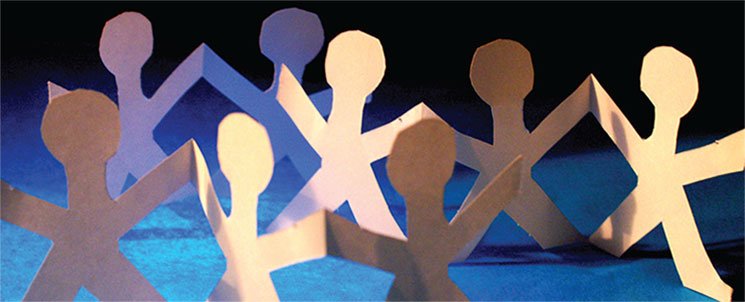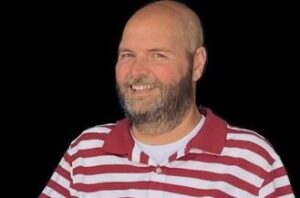Respect. Friends. Family and loved ones. Home. Fair and just treatment. Access to places of everyday life. Having a say. Being treated as an individual. Opportunities to discover and develop talents. Having something important to contribute and being acknowledged for contributions. In his 1996 paper, “The Universal Good Things of Life,” Wolf Wolfensberger took a stab at naming the things that all people want, regardless of socioeconomic status, race, or culture.
Dr. Wolfensberger wrote about these life qualities, things that most of us take for granted, because countless people with disabilities have lives characterized by the opposite. Many are profoundly lonely and lack a real home. Placed with others having the same socially devalued characteristics, people are kept apart and away from typical aspects of everyday life. Adults are treated as though they are children, thought of as a group (of 3 or 8 or 20), sometimes entertained, and typically unchallenged. People are often bored and offered few opportunities to contribute.
Addressing disparities and asking the right questions
Last summer six organizations, each having a team of four people, began gathering to study and examine the “us and them” life discrepancies described above. What should be the place of people with disabilities in society? What do people deserve? What should be offered? What’s possible?
What’s most important? Why?
We call our community of practice Endeavor for Excellence. All are involved in seeking personalized expressions of the question: How can we work in partnership with people who often find themselves sitting
on life’s sidelines, so they instead have access to the good things of life?
Endeavor for Excellence and its evolution
In 2012, Ireland’s Genio Foundation sponsored Kentuckian Hope Leet Dittmeier’s development of Endeavor for
Excellence. Irish human service providers, struggling with the same problems we have throughout the U.S., needed another way of understanding people and their needs, discerning actions to be taken and then moving forward. Benefitting from four iterations of Hope’s course development and work in Ireland, the Kentucky Division of Developmental and Intellectual Disabilities, our Human Development Institute,and participating organizations funded a July through February pilot marking our first Kentucky community of practice.
Moving from theory to practice
Team members (including implementers, managers, and executive leadership) invite a learning partner, someone
receiving services from their organization who desires a different kind of support than what is currently received. Learning partners do not attend the 16 days of course work (four four-day weeks), but engage cooperatively with their course participant around practical application of content studied. Between the weeks of professional development, course leaders, Hope Leet Dittmeier and Milton Tyree, travel to participating organizations and meet with team members discussing translation of principles, successes, and challenges.
Characteristics of the course
- Valid: Teaches and applies an empirically based theory of practice derived from Wolf Wolfensberger’s Social Role Valorization theory.
- Contemporary: Marries many coherent best-practice strategies, borrowed from leaders in the field including
Judith Snow, Michael Callahan, John O’Brien, Beth Mount, John Lord, David Pitonyak, Janet Klees, Jane Sherwin, Tom Kohler, Darcy Elks, Michael Kendrick and others. - Practical: Employs a learn-by-doing approach that relies on each participant engaging a partner whose life will be positively impacted as a result of the journey.
- Systematic: Relies on a logical, step-by-step sequential process that starts with learning the theory of practice derived from SRV. Subsequent steps explore establishing a productive partnership, gaining clarity about the complexity of choice, getting to know people from a different perspective, identifying people’s
most fundamental needs and life-giving visions, determining relevant planning considerations, and implementing new service responses to match people’s visions. - Reflective: Teaches and models routine reflective practice, including the use of critique, to encourage clarity, creativity,and accountability.
- Ambitious: Aims for high-quality services designed to support people to obtain a home of one’s own, valued
social roles (including adult and contributing roles), and meaningful relationships. - Robust and Influential: Provides sufficient training,feedback and support to significantly enhance the professional capacity of participants to apply the learning in the lives of others.
What’s next
While progress has been made with our pilot course, we realize that changing practices of isolation and segregation that are deeply rooted in our society will not be resolved by an eight-month workshop involving 24 people. Especially now, given the new SCL2 (Supports for Community Living 2
Medicaid waiver) service definitions for “community access” and “shared living,” we need many examples of positive possibilities facilitated by Kentucky service providers with people they serve. Our Endeavor for Excellence community of practice needs to be expanded and sustained with a new course
offered annually. A separate and complementary course, “A Vision for Families: Social Value and Inclusion for People With Disabilities,” is being developed with international SRVteacher Darcy Elks.
Many Kentuckians providing and receiving services are ready for new ways of understanding and engaging with one another – a deepening of balanced reciprocal relationships that offer qualities of belonging, contribution, and citizenship. Other citizens outside of human services benefit, too, from
opportunities to know people who would otherwise remain unknown. After all, who would turn down more of the good things of life?
For additional information about Endeavor for Excellence, please contact Milton Tyree, mtyree@uky.edu.



